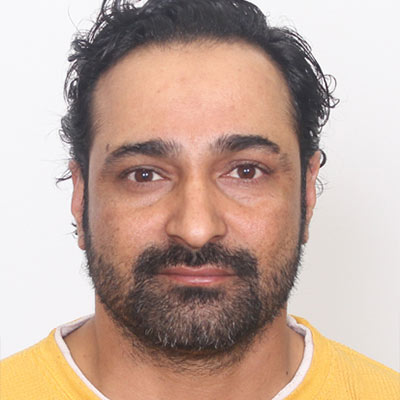
WHY STUDY IN NEW ZEALAND?+
- It is a very safe and welcoming country with the world-class reputation for cutting-edge research and resourceful energy.
- It is one of the most popular education destination which follows prestigious British Education system .
- New Zealand schools, universities, and institutes are recognized worldwide for their high standards.
- One of the most beautiful place in the world to live .
- New Zealand offers very affordable tuition fee compared with many other countries around the world.
- Competitive tuition fees along with a low cost of living represent a good value for your money.
- On student Visa, you are allowed to work part-time, up to 20 hours per week, and full-time during scheduled holidays.
- Post study works up to 4 years . It will be depending on what you have studied
- Possibility to gain permanent residence after you post study work .
- Spouse and Dependent can go with the main applicant on either visitor visa or work visa .
Higher Education (Tertiary Education) System in New Zealand+
Higher education or tertiary education in New Zealand delivered by the
- Universities
- Institutes of Technology and Polytechnics (ITPs)
- Private Training Establishments (PTEs)
- Industry Training Organisations (ITOs)
Higher Education in New Zealand is managed by quality assurance system called New Zealand Qualifications Authority (NZQA) which allow that institutions are registered to enrol international students and ensures compliance with qualifications standards.
There are 8 universities in New Zealand which offer degree courses in science, humanities and commerce along with 18 institutes of technology and 600 training schools are there to offer you specialized training in engineering, medical, business, etc.

Types of programmes offered by Higher Education Institutes
Associate’s Degrees
If you do not know whether a Bachelor’s degree will be helpful or not, you can go for an Associate’s degree. Mostly theory based classes with some practical classes; the Associate’s degree will allow you to work immediately after completion of your course. You can later get a Bachelor’s degree by studying only a year extra instead of the required 3 years. However, the Associates degree is generally given for liberal arts.
Bachelor’s Degrees
New Zealand offers you a three years degree course in the undergraduate level. After completion of the first and second level, you can go to the second and third level respectively. For each subject, you have to attend a scheduled set of classes. All the grades received by you will count towards your final grade in the third year.
Bachelor’s Degrees
You can achieve the following postgraduate degrees.
- Graduate Certificates
- Traditional Master’s Degree
- Professional Master’s Degree
- Doctorate Degrees
How can I apply to New Zealand Universities ?+
Intakes:
- July- Major intake
- September
- February
English Language Requirements
- All students must be fluent in the English language if they are to succeed at university in New Zealand. IELTS is most accepted test score to prove English proficiency . A band of 5.5/6.0 for undergraduate & 6.0 / 6.5 for postgraduate courses is desirable, however sometime IELTS can be waived off too .
Process :-
- In order to apply for a university, you need following set of documents
- Academic Documents ( from 10+ years of Education onwards )
- Passport Copy
- IELTS or TOEFL
- Statement of Purpose
- CV
- Reference letters ( 3 references for Ph.D. )
- Then complete and sign an application form, and select the course and intake you wish to enrol into. You can do it by making an online application . Submit all the documents to university .
- If you met all the requirements then the university will issue an Offer of Place letter . If you accept a place in university then the university will issue you a confirmation of Studies letter and Tax Invoice. We will assist you with the Student Visa application process.
Cost of Studying+
Living Cost
The living cost in New Zealand is at an average NZ$15000 per year year plus return airfare or additional $2,000. as per Immigration New Zealand guidelines however the cost of living will mostly depend on your location and can vary between NZ$7,000 and NZ$12,000 per year.
| General expenses | Cost(in NZ dollars) |
|---|---|
| Rent (per month) | $800–$950 |
| Groceries (per week) | $100–$150 |
| Gym membership (per year) | $300 |
| Entertainment (per week) | $50 |
| Lunch from University food hall or campus café | $7–$12 |
| Local calls made from a cell-phone | $0.50–$1.50 |
| Taxi - 5 km ride | $10–$12 |
| Visit to doctor | $45–$85 |
Tuition Fee
Each university in New Zealand sets its own structure for tuition fees, thus, the tuition fees you will need to pay will depend on your selected university, course chosen and level of study. Undergraduate degree generally costs between NZ$8,000 and NZ$25,000 per year. Postgraduate studies can cost between NZ$10,000 and NZ$30,000. Costs largely depend on your chosen subject. For example
- Fees for arts or social sciences range from NZ$20,000 a year.
- Courses in science and engineering can cost from NZ$25,000 per year.
- Dentistry and medicine can cost from – NZ$75,000 per year.
Visa Process and Requirements +
You will need a student visa if you wish to come to New Zealand to study full-time for more than 3 months. You can only get a student visa to study in a course at an education institution, which is registered and approved by the New Zealand Qualifications Authority. Student Visa applications are processed by New Zealand Immigration Service.
Your student visa will be issued for the length of time your course tuition fees have been paid. If you are studying a long-term course at secondary school, university or polytechnic you will normally pay your tuition fees every year. Your visa application should be lodged at least two months prior to the course commencement date.
Requirements for Visa :
In order to get a student visa you have to show you have enough money to meet your tuition fee and living costs during your stay.
New Zealand Pre-visa Document Checklist
- Passport copy as proof of identity
- Police Clearance Certificate from Regional Passport Office- as a proof of good character
- Medical and T.B. X-ray Certificates from Panel Doctor ( Recognised doctors from Immigration New Zealand ) - as a proof of good health
Offer Letter from the approved Institution
It must include
- The name of your course and how long the course is for
- Confirmation that your tuition fees will be paid by New Zealand Aid
- Mode of study
- If your course is for more than one academic year, the dates of all of the course’s scheduled holidays
- If you’re under 18, confirmation that your accommodation complies with the ‘Code of Practice for the Pastoral Care of International Students’.
- a 'Sponsorship Form for Temporary Entry' completed by an acceptable sponsor
- proof that you have NZ$15,000 for a full year of study or NZ$1,250 per month that you’ll be in New Zealand
- documents that show your living costs have been paid
- a completed 'Financial Undertaking for a Student' form.
- Offers of place must also include your approved education provider’s signed declaration that they’ve assessed:
your ability to participate in the course
that the course is a good match for your abilities and education needs.
- Tuition Fee payment - ( For applications processed outside New Zealand, evidence of payment isn’t required until after the application has been approved in principle. ) . If tuition fee is paid in advance, then attach copy of fee receipt.
- Finance for living - You must have enough funds to living . For that you need to provide following evidence
- Mode of study
- If your course is for more than one academic year, the dates of all of the course’s scheduled holidays
- If you’re under 18, confirmation that your accommodation complies with the ‘Code of Practice for the Pastoral Care of International Students’.
- Offers of place must also include your approved education provider’s signed declaration that they’ve assessed:
Acceptable funds resources for South Asian Students
- You may be able to use a Funds Transfer Scheme to show you meet the minimum funds requirement.
- Proof of funds should include wages slips and corresponding bank statements for at least the last six months showing transfers into your or your sponsor’s or financial guarantor’s bank account.
- You should also provide tax returns for the last three years to confirm regular income.
- Other evidence of funds can include a fixed-term deposit that is at least six months old, or a General Provident Fund (GPF) or Employer Provident Fund (EPF) statement held with a Reserve Bank of India (RBI) approved financial institution.
- Other evidence of funds can include a fixed-term deposit that is at least six months old, or a General Provident Fund (GPF) or Employer Provident Fund (EPF) statement held with a Reserve Bank of India (RBI) approved financial institution.
- • Education Loan from approved Bank .
NB: only immediate family are able to sponsor you or provide a financial undertaking. Immediate family are your partner, parents, siblings, grandparents and parents-in-law.
- Covering letter If you intend to study for more than 12 months, you should provide a payment plan, and evidence showing how you’ll pay your tuition and living expenses for your entire time in New Zealand. The evidence of savings and income supporting your payment plan should cover the last 3 years.
- Academic Documents : which used to get the admission in institute
Educational Certificates, Mark sheets, Degrees and Diplomas
IELTS / TOEFL / PTE score - You can apply online from here or use the paper form.account.
- Two recent passport size photographs
- Covering Letter
- Visa Fee payable to INZ
- Confirmation of Accommodation Arrangement
NB: A complete check list of visa documents for South Asian student can be found here
Completed Student Visa Application Form (INZ 1012)
Visa Stamping+
Upon receiving the Approval-in-Principle, the student has to pay the first year’s tuition fee to the institution. Thereafter, the institution will send the fee receipt by email to NZIS, to enable them to issue the Visa Stamp.
Cost of Visa : A student visa will cost you 295 NZD + Rs. 690 (approximately). The INZ, New Delhi, does not accept cash or credit cards – you will have to pay through a bank cheque or a draft.
FTS for Indian and Srilankan Student +
The ANZ Bank of New Zealand Limited (ANZ) offers a Funds Transfer Scheme (FTS) that allows students to transfer money from banks and financial institutions overseas to an ANZ bank account in New Zealand. These funds are released periodically to support students while they are in New Zealand.
Students from India and Sri Lanka, who’ll be studying in New Zealand for a year or more, can use the FTS to show us they meet the minimum funds requirement for a student visa.
Minimum funds requirement
Most New Zealand student visas require you to have NZ$15,000 in addition to your course fees for each year you’ll be studying in New Zealand. This money is to cover your living costs while you are in New Zealand.
You can use the FTS to transfer these funds to New Zealand and then access them while you are studying.
You can use the FTS to transfer these funds to New Zealand and then access them while you are studying.
When we assess student visa applications, we often ask you to explain how you earned or acquired your funds and provide evidence.. We do this to make sure the funds will be genuinely available to you while you are studying
Accessing your funds to cover living costs
You can use the money in your FTS ANZ bank account to cover your living costs while studying in New Zealand. You’re allowed to withdraw NZ$1,250 each month. You can do this from ANZ Bank branches, ATMs, and use EFTPOS.
Your money will be locked in for the period of your study, and you won’t be able to use it for any other reason. This can be useful because:
- it limits the amount of money you’ll have access to at one time, so you can’t overspend and run out of money later
- it can make it quicker and easier for us to make a decision about your visa application.
If you’d like to have another bank account you can use more freely, you can open one with any bank in New Zealand, including ANZ.
Withdrawing funds
You can withdraw funds from your FTS bank account, other than to cover living costs, if:
- your student visa application is declined
- you decide not to continue your study
- you’ve completed your studies
If your visa application is declined, New Zealand immigration department contact ANZ to arrange a refund.
If you decide not to continue your study, you should contact the Immigration New Zealand office that issued your visa for a refund. So they can arrange the refund, you’ll need to provide them with both:
- a letter from your education provider confirming your enrolment has been terminated or that you have withdrawn from the course
- evidence you have a travel ticket out of New Zealand to a country you have a right to enter.
Applying for an account
To apply for an account, simply contact ANZ Bank.
All deposit accounts earn interest. Rates are set by the bank and change often. Interest rates are available on ANZ’s website.
ANZ Bank enquiry form
ANZ bank website
Applying for a student visa
- If you want to use FTS to show New Zealand immigration department that you meet the funds requirements for a student visa, you should mark the front of your student visa application ‘FTS’. You should also explain that you’ll be using FTS in the covering letter you send with your application. You’ll still need to complete the funds part of the application, explaining how you’ll meet the minimum funds requirement and where the funds will be coming from.
- If you meet all of the criteria for the student visa, apart from the funds requirement, New Zealand immigration department approve your application in principle and send you a letter confirming your approval in principle (AIP).
- You can provide your AIP letter to ANZ together with your completed ANZ Enquiry form. ANZ will then open a New Zealand bank account for you. You can then approach your bank or financial institution in India or Sri Lanka to transfer funds to your ANZ bank account. The funds you transfer must be the same funds that you provided as evidence in your visa application.
- Once your funds have been transferred to New Zealand, ANZ will send you a letter confirming the transfer and your account balance. You’ll need to provide a copy of this letter to us within 10 days of receiving your AIP letter.
- When you arrive in New Zealand, you’ll need to visit an ANZ bank branch to activate your bank account. You can then start using the account to cover your living costs while you study.
Universities+
These are the 8 universities of New Zealand offering degree programmes at undergraduate and postgraduate levels.
| University | Location | Course Offered |
|---|---|---|
| University of Auckland | Auckland | Business , Science, Arts, Engineering, Medicines, Architecture, Optometry |
| Auckland University of Technology | Auckland | Business , Science, Arts, Health Science |
| University of Canterbury | Christchurch | Business , Science, Arts, Engineering, Forestry and Fine Arts |
| Lincoln University | Christchurch | Business , Science, Arts, agriculture, horticulture, |
| University of Otago | Dunedin | Business , Science, Arts, Medicines, Dentistry, Pharmacy |
| University of Waikato | Hamilton | Business , Science, Arts, Law and Maori Studies |
| Massey University | Palmerston North | Business , Science, Arts, agriculture, horticulture, food technology, and veterinary science |
| Victoria University of Wellington | Wellington | Business , Science, Arts, Law , Architecture, Public Administration, and Social Work |
Institutes of Technology and Polytechnics (ITPs).
Below is a list of institutes of technology and polytechnics in New Zealand:
- SDS (Student Direct Stream) Category
- Bay of Plenty Polytechnic - Tauranga
- Christchurch Polytechnic Institute of Technology (CPIT) - Christchurch
- Eastern institute of Technology - Taradale, Napier
- Manukau Institute of Technology - Manukau (Auckland)
- Nelson Marlborough Institute of Technology (NMIT) - Nelson, Blenheim
- Northland Polytechnic - Whangarei
- Otago Polytechnic - Dunedin
- Southern Institute of Technology - Invercargill
- Tai Poutini Polytechnic - Greymouth
- Tairawhiti Polytechnic - Gisborne
- Telford Rural Polytechnic - Balclutha
- The Open Polytechnic of New Zealand - Completely Online
- Unitec New Zealand - Auckland
- Universal College of Learning - Palmerston North, Whanganui
- Waiariki Institute of Technology - Rotorua
- Waikato Institute of Technology (WinTec) - Hamilton
- Wellington Institute of Technology (WelTec) - Wellington
- Western Institute of Technology at Taranaki - New Plymouth
- Whitireia Community Polytechnic - Porirua
Working in New Zealand +
During Study :
Student can work up to 20 hours each week during the academic year provided he/she is enrolled in a full time course of study that meets one of the criteria listed below.
- The student is undertaking at least 2 years long course at a private training establishment or tertiary institutions
- The course leads to a New Zealand qualification that qualifies for points under the Skilled Migrant Category of Immigration New Zealand's Residence Instructions.
- The course is at least one academic year long and student is taking part in an approved tertiary exchange scheme.
- Student is studying in year 12 or year 13 and has written permission from his/her school and his parents.
Student can work full time during the Christmas and New Year holiday period at the end of each academic year provided student's course of study is full-time and more than 12 months long. More information about work can be found here .
Work rights for dependents
Spouses of student on Work Visa can work full time in NZ. However, the dependents of students on visitor visa have no work rights.
After Study :
The post study graduate pathway has two steps:
- Post-study work visa (open). This visa gives recent graduates up to 12 months to get a job in a field related to their studies. While they are looking for a job they are allowed to work in any job to support themselves.
- Post-study work visa (employer assisted). This visa lets graduate students stay in New Zealand to gain work experience in their field of study for a further two years (or three years if work experience is required as part of a professional registration). This visa relates to a specific job with a specific employer.
After working on a post-study work visa (employer assisted) a number of years, graduates may have sufficient New Zealand work experience to apply for a New Zealand residence visa. If their work is in an occupation that has skill shortages, then this improves their chances of being allowed to stay, either with work visas or residence.





